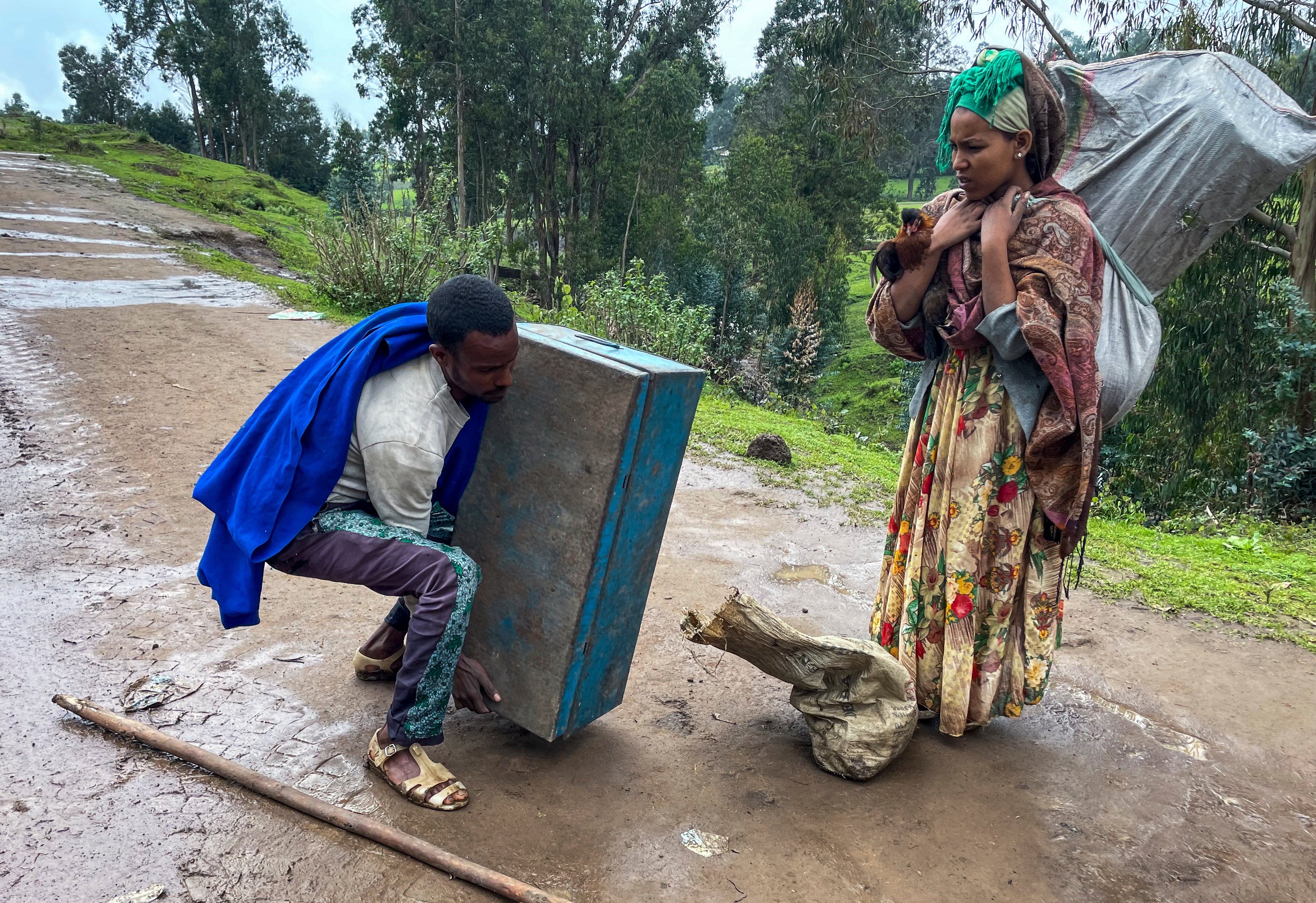UN projects soaring humanitarian needs in world in 2022
The United Nations is predicting that a record 274 million people – who together would amount to the world’s fourth most-populous country – will require emergency humanitarian aid next year in countries like Afghanistan, Ethiopia, Myanmar, Syria and Yemen face a raft of challenges including war, insecurity, hunger, climate change and the coronavirus pandemic

Your support helps us to tell the story
From reproductive rights to climate change to Big Tech, The Independent is on the ground when the story is developing. Whether it's investigating the financials of Elon Musk's pro-Trump PAC or producing our latest documentary, 'The A Word', which shines a light on the American women fighting for reproductive rights, we know how important it is to parse out the facts from the messaging.
At such a critical moment in US history, we need reporters on the ground. Your donation allows us to keep sending journalists to speak to both sides of the story.
The Independent is trusted by Americans across the entire political spectrum. And unlike many other quality news outlets, we choose not to lock Americans out of our reporting and analysis with paywalls. We believe quality journalism should be available to everyone, paid for by those who can afford it.
Your support makes all the difference.The United Nations is predicting that a record 274 million people – who together would amount to the world’s fourth most-populous country – will require emergency humanitarian aid next year in countries like Afghanistan Ethiopia Myanmar Syria and Yemen which face a raft of challenges including war, insecurity, hunger, climate change and the coronavirus pandemic.
The Office for the Coordination of Humanitarian Affairs, in its annual overview of future needs, is projecting a 17% jump in the number of people who will need urgent assistance in 2022, and is appealing to donors to provide a record $41 billion to help 183 million people who are the most in need.
“The climate crisis is hitting the world’s most vulnerable people first and worst. Protracted conflicts grind on, and instability has worsened in several parts of the world, notably Ethiopia, Myanmar and Afghanistan,” said Martin Griffiths, the head of OCHA. “The pandemic is not over, and poor countries are deprived of vaccines.”
The appeal pulls together needs from an array of U.N. agencies and their partners, and is likely to fall short of its ambitions. This year, donors provided over $17 billion for projects in last year’s Global Humanitarian Overview from OCHA, but funding has been less than half of the U.N. request for 2021.
This year, Griffiths said, “we reached 70 percent of the people that we wanted to. We’re aware that we’re not going to get the $41 billion, much as we will try hard.”
The overview lays out country-specific plans for 30 countries, half of them in Africa, and most of the rest in the Middle East or Latin America.
Griffiths cited estimates by the U.N.’s Food and Agricultural Organization that 45 million people are at risk of famine, in dozens of countries.
“Humanitarian aid matters,” said Griffiths. “We were able to stop famine affecting half a million people in southern Sudan … we delivered health care to 10 million people in Yemen … we’ve helped vaccinate millions in Myanmar."
OCHA says more than 24 million people require life-saving assistance in Afghanistan, driven by conflict, political turmoil, the coronavirus, economic shocks and the worst drought in more than a generation.
“We never left Afghanistan. And we are there now with a projected program for 2022, three times the size of the program for 2021 — because of the various needs and circumstances that you know so well,” he said.
That appeared to be an allusion to the ouster of the internationally-backed Afghan government by Taliban fighters in August, and surge of humanitarian needs in the country – including the fight against famine and hunger – since then.
Griffiths said the situation in Ethiopia, where the government has been battling fighters from the Tigray region, is the “most worrying” in terms of “urgent, immediate need” and said he was “very worried” about a possible siege by fighters on the capital, Addis Ababa.
“The capacity to respond to an imploded Ethiopia is almost impossible to imagine,” he said.
“I think Ethiopia is the most concerning,” Griffiths said, adding: “It’s a terrible thing to have to choose between, you know, places of such great need” in the world.